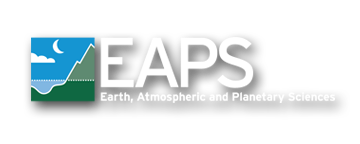Planetary Lunch Seminar (PLS) – Abhinav Jindal (Cornell)
Title: Evolution of Smooth Terrains on Comet 67P/Churyumov–Gerasimenko
Abstract: The Rosetta mission to 67P/Churyumov–Gerasimenko (67P) provided the most detailed ever views of a comet’s surface. By tracking the comet on its journey through the inner solar system for just over two years, Rosetta observed an increasing amount of activity and surface changes as the ice-rich surface warmed up. Due to its present-day obliquity and orbit, southern summer corresponds closely with perihelion resulting in greater solar insolation at southern latitudes than in the north. This creates a hemispheric dichotomy in surface morphologies – layered bedrock units that represent the exposed nucleus are dominant in the south (“rough” terrains), while topographically smooth, sediment-covered regions dominate the north (“smooth” terrains). It was within the smooth terrains that we observed the majority of changes on 67P, making them critical to understanding the overall evolution of its surface.
In this talk I will present our analysis of scarp-driven erosion and sediment redistribution in the largest and most southern smooth terrain deposit — the Imhotep region. Unlike all other smooth terrains on 67P, Imhotep’s equatorial location ensures that it never experiences polar winter, and is therefore active throughout 67P’s perihelion passage, resulting in greater activity relative to other areas on the comet. Despite this high activity, Imhotep still serves as a sink for sediment transported from across the comet, suggesting that the influx of material still outpaces activity from the region over multi-orbit timescales.
This complex behaviour of erosional and depositional processes acting simultaneously, therefore, makes Imhotep an ideal location to study the evolution of smooth terrains. With smooth terrains observed on all other comets for which we have resolved surface images, we can use the understanding we have developed on 67P to understand the broader evolution of cometary smooth terrains. Finally, as the smooth terrains are likely targets of upcoming sample return missions, our work greatly benefits such concepts by constraining the evolution and context of any returned materials.
About this Series: The MIT Planetary Lunch Seminar [PLS] is a weekly seminar series organized within the EAPS department. Colloquia topics span the range of research interests of the department’s planetary sciences research program. The seminars take place on Tuesdays from 12:15–1:30 pm, unless otherwise noted (term-time only). Speakers include members of the MIT community and visitors. Talks are intended to appeal to graduate students, postdocs, research scientists, and faculty with a background in planetary science. For more information and Zoom password contact: planetary-org@mit.edu.



